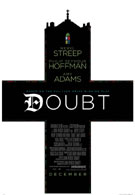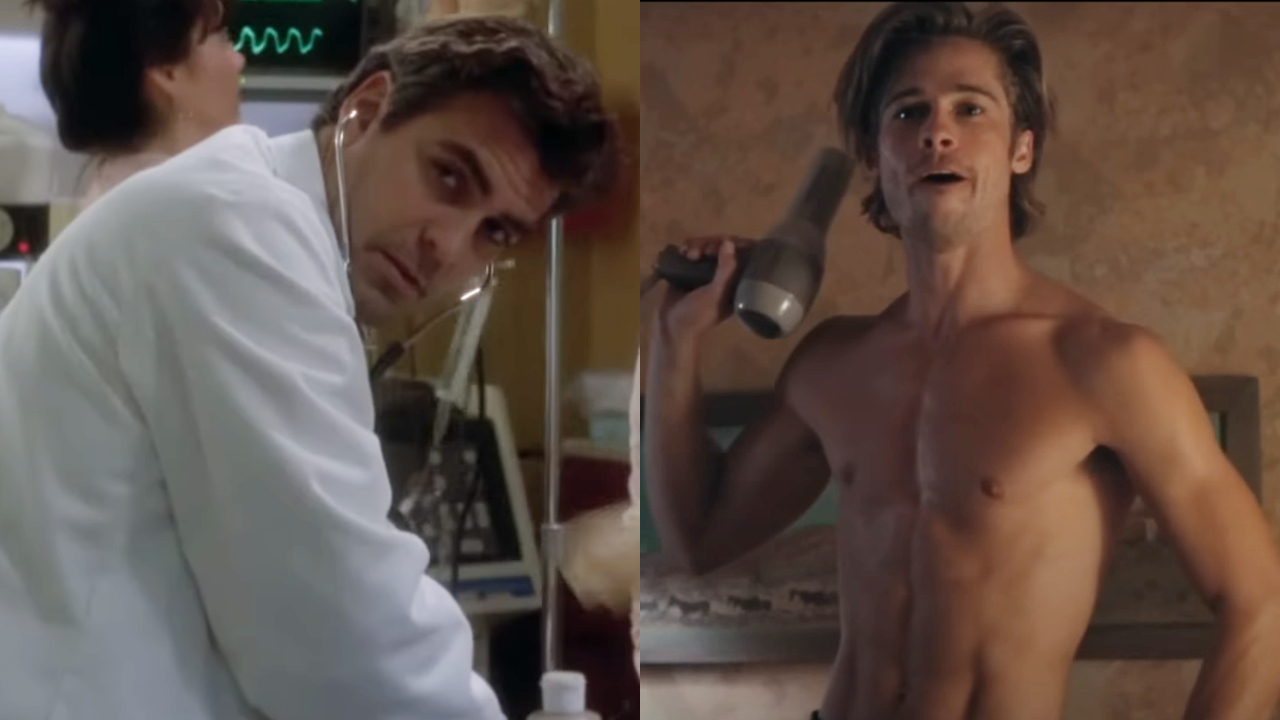Aside from the four extremely strong performances at its center, and the sticky, troubling moral issue that drives it, Doubt isn't much cinematically. It turns out that John Patrick Shanley, who wrote the celebrated stage play as well as this screenplay, has done himself a disservice by directing his own work in a clumsy, sometimes amateurish way. But his story is so strong, his ideas so complex, and his actors so talented, that the movie’s strengths overcome nearly all its flaws.
The prospect of Meryl Streep and Phillip Seymour Hoffman facing off against one another is irresistible for anyone who admires their work-- and who doesn't?-- and scene after scene rewards the audience with simmering, expertly strung tension. Streep's Sister Aloysius is a dragon of a nun, ruling her school with stern looks and the fear of God. Stubbornly resisting the advent of the 60s, Sister Aloysius rejects things like adding secular songs to the Christmas pageant and ballpoint pens-- especially when they're advocated by Father Flynn (Hoffman). 20 years her junior and relatively new in town, Flynn is seen as more relatable and fun by many of the students, especially Donald Miller, the school's only black student. Based on circumstantial evidence and her innate distrust of Flynn, Sister Aloysius first obliquely and then directly accuses him of abusing the boy.
Caught in the middle are Sister James (Amy Adams), who admires Sister Aloysius even as she sympathizes with Flynn, and later Donald's mother (Viola Davis), who in her single explosive scene argues that, for a poor black boy in the early 60s, there are worse things than an inappropriately close relationship with a well-meaning priest.
Shanley's taut, laser-focused script scrapes away layers of the two leads as they wage their battle against each other. Aloysius, though intolerant and sometimes brutal, is also an early feminist, bristling at the limitations put upon women in her beloved church. And Flynn, despite the personal demons that may have brought him to Donald Miller, is clearly the only true friend to the only black boy at a school full of distrustful white faces. The on-the-nose title is present in every scene, and Streep and Hoffman both expertly navigate the boundaries between their characters' outward convictions that they are right, and a private knowledge that may reveal otherwise. Whether or not Flynn is guilty is never revealed, and two audience members could walk out having precisely opposite opinions on his guilt-- a remarkable feat of both acting and writing.
The play's themes and goals are so clearly expressed by the actors that Shanley's intrusive direction, particularly the camerawork, becomes the film's sole pitfall. He hammers home the church's gender divide by intercutting scenes of priests smoking and drinking while the nuns silently eat their vegetables. Thunder claps after nearly every important line, and the camera rests at canted angles to depict the shifting balance of power between Aloysius and Flynn. The play carried the subtitle "A Parable," and though it's often possible to follow Doubt as a story on its own terms, Shanley's overbearing hand occasionally lets the obvious moral lessons bring the story crashing down.
Filled as it is with multiple monologues that literally spell out the film's themes and ideas, it's remarkable that Doubt succeeds so well as a movie, a medium not particularly well-suited to allegory. The credit lies largely with its actors, who create real people out of vague concepts like Cynicism, Hope, Resignation and, yes, Doubt. Even Amy Adams, whose Sister James works as an audience surrogate, finds credible despair and wisdom within her naive character. And Davis is simply a wonder in her single scene, embodying all of the film's complex moral issues in one woman who has experienced too much poverty and pain to see anything in black and white. A showcase for brilliant actors that will keep audiences talking long after the credits have rolled, Doubt is a fascinating, worthy adaptation, even when its own cinematic shortcomings dilute its power.
Your Daily Blend of Entertainment News
Staff Writer at CinemaBlend


